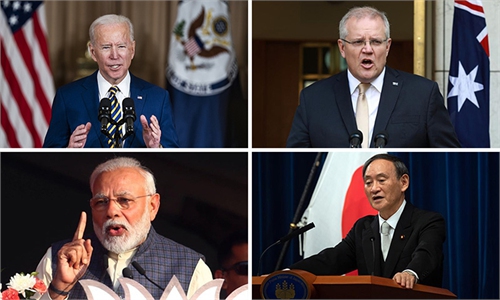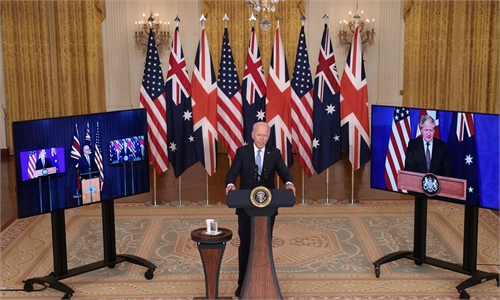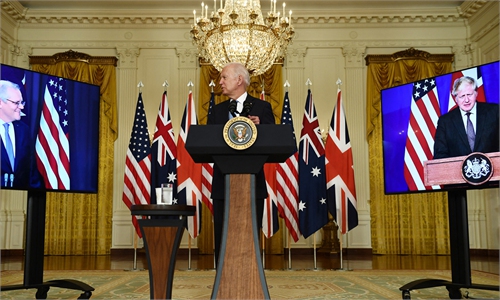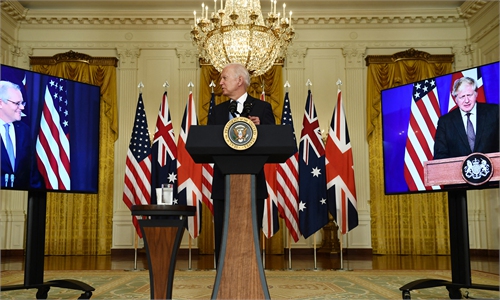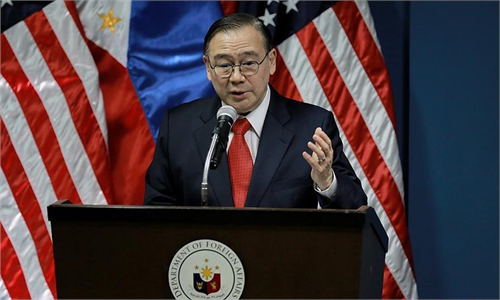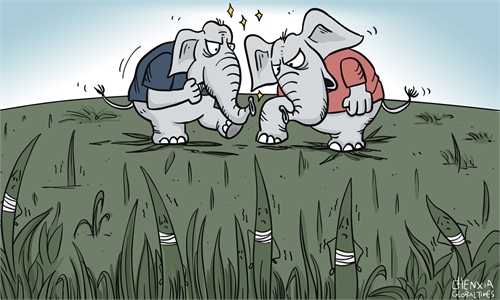Malaysia to seek China’s views on AUKUS as ASEAN countries fear nuclear proliferation, arms race
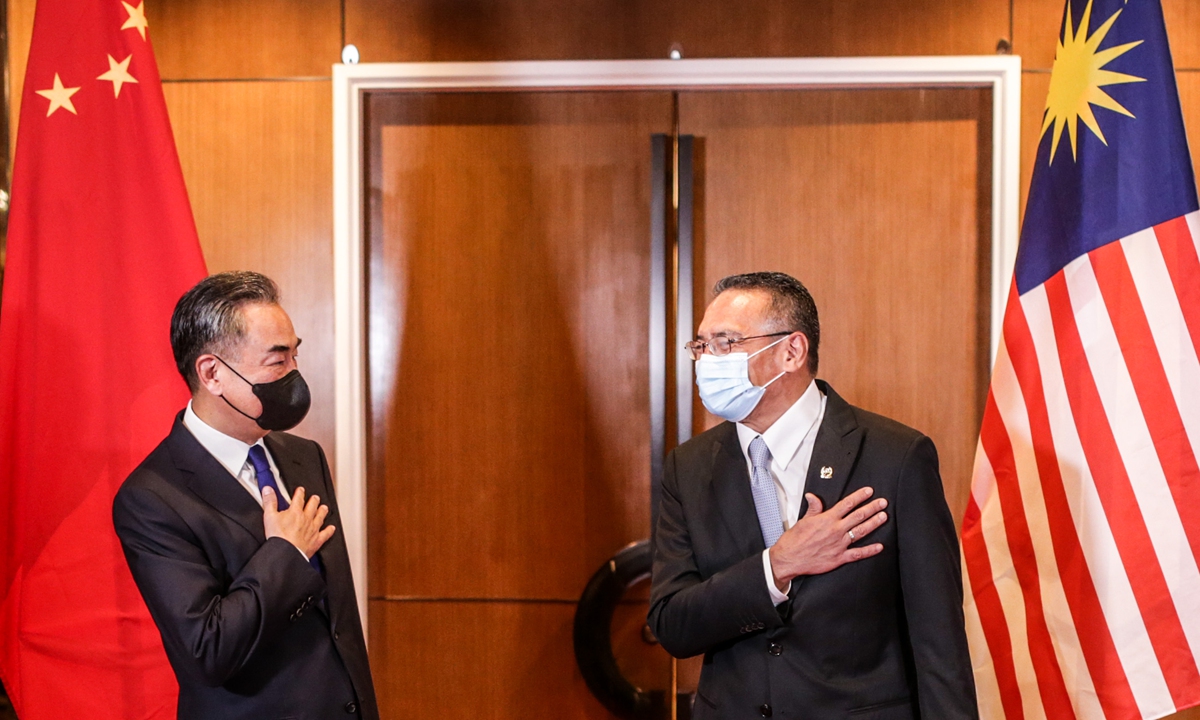
Chinese State Councilor and Foreign Minister Wang Yi (left) and Malaysian Foreign Minister Hishammuddin Hussein Photo: AFP
As Southeast Asian countries grow unnerved about AUKUS, a trilateral pact between the US, the UK and Australia that will provide Australia with nuclear-powered submarines, Malaysia announced it would seek China's views on AUKUS, as the key ASEAN member is concerned about regional peace and stability that could be ruined by a security pact-triggered arms race.
Indonesia, another key ASEAN member, also said it is "deeply concerned over the continuing arms race and power projection in the region."
Observers said the two major countries' attitudes represent the stance of most regional countries, who are concerned about risks of nuclear proliferation, regional militarization and falling victim to major power competition.
Malaysian Defense Minister Datuk Seri Hishammuddin Hussein said on Wednesday his ministry is planning a working visit to China soon to discuss the matter, especially on defense-related issues.
The plan came after the country voiced serious concerns over the nuclear vessel pact that "has the potential to disrupt security and stability in Southeast Asia," a Malaysian news outlet cited Hishammuddin as saying. The minister also urged Australia to reach out to Brunei on the issue.
Ge Hongliang, director of the College of ASEAN Studies at Guangxi University for Nationalities, told the Global Times on Thursday that Malaysia wanted to seek Chinese views because China has always been a firm supporter of the ASEAN's autonomous principle and jointly opposes interference from external forces.
China and Malaysia will communicate on further consensus and cooperation amid threats brought by AUKUS and how to react jointly if the US, the UK and Australia make further moves jeopardizing regional peace and stability, the expert said.
Australia claimed the warship will only be nuclear-powered, not nuclear weapon-equipped, but that cannot assure the ASEAN.
Herman Tiu Laurel, a columnist of the Filipino newspaper Pwersa, told the Global Times that a nuclear submarine is fueled with "enriched uranium" which can quickly be converted to weapons use. That constitutes a violation of the ASEAN Zone of Peace, Freedom and Neutrality (ZOOPFAN) signed in 1971 and the Nuclear Non-Proliferation Treaty (NPT).
Mutti Anggita, a nuclear nonproliferation specialist and lead analyst for security at a Jakarta-based think tank, told local media the pact could indicate Australia's first step toward the development of nuclear weapons.
It puts Australia, its neighbors and the Asia-Pacific region at risk of becoming a nuclear accident site, Mutti said.
The head of the Indonesian Maritime Security Agency, Aan Kurnia, said at a Monday government hearing that the direct impact (of AUKUS) could be the large number of non-claimant state military forces present in the South China Sea.
Indirectly, it can cause disruption to shipping traffic. There will be an increase in risks so that insurance and logistics costs will increase, which has the potential to create an energy and economic crisis, Kurnia said.
The Philippines, whose domestic politics is contentious, is the only country in the region that backs AUKUS, as its Secretary of Foreign Affairs Teodoro Locsin said in a statement on Tuesday that "the enhancement of a near-abroad ally's ability to project power should restore and keep the balance rather than destabilize it."
Laurel criticized Locsin for setting up the Philippines as a laughing stock on the issue, noting non-US media portrayed Locsin as a usurper of ASEAN's voice.
The pact must be read in the context of "Asia Pivot" moving 60 percent of US military forces to "contain Asia's rise," certainly not just China, and the heightened US militarization of the Asia-Pacific, Laurel said, calling on the Duterte administration to rectify the serious error and denounce the AUKUS as an instrument of "Cold War" escalation.
Manila should not ignore the high risks of Southeast Asia turning into a battlefield for a new round of major power competition, experts said, noting the contrast in attitude also harmed the ASEAN bloc's centrality and cohesion.
